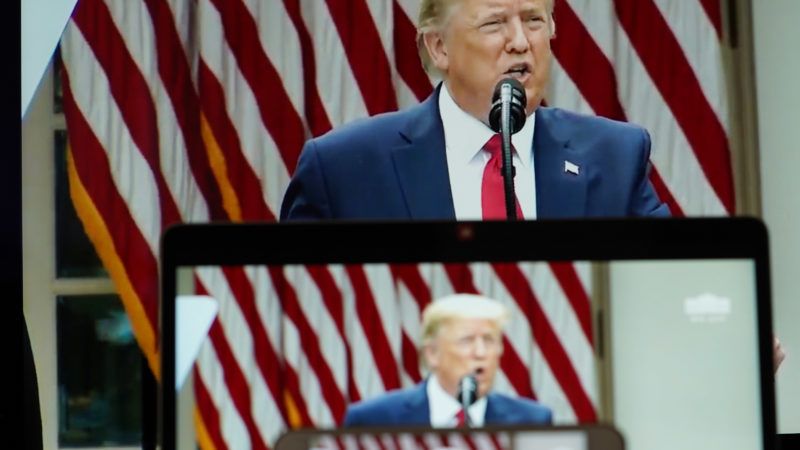Trump Says U.S. Will End Special Trade, Immigration Deals With Hong Kong
President Donald Trump announced a significant escalation of his administration's conflict with the Chinese government—a conflict that is increasingly looking less like a trade war and more like a cold war.

President Donald Trump on Friday announced a significant escalation of his administration's conflict with the Chinese government—a conflict that is increasingly looking less like a trade war and more like a cold war.
In a press conference, Trump announced that the U.S. would end its special relationship with Hong Kong—since Hong Kong rejoined China in 1997, the U.S. has maintained separate trade, customs, and immigration agreements with the city than it has with the rest of China. The move effectively cements China's control over Hong Kong and jeopardizes billions of dollars of annual trade.
"Hong Kong is no longer sufficiently autonomous to warrant the special treatment that we have afforded the territory," Trump said outside the White House. "My announcement today will affect the full range of agreements we have with Hong Kong," including extradition and export rules.
More than 1,300 American companies have business operations in Hong Kong, and there are more than 85,000 U.S. citizens living in Hong Kong, according to a Reuters analysis. Terminating the city's special status means the much stricter Chinese visa and travel rules will likely apply to Americans who travel there (more on that should be released in the coming days).
Hong Kong could also lose its special preferential status for trade, which would be a major blow on both sides of the Pacific. Previously, Hong Kong imported American goods with zero tariffs, and last year the U.S. had a $26 billion trade surplus with the territory. That's all at risk now.
Trump also announced plans to block some Chinese nationals from entering the United States, citing their status as a potential security risk, and promised to sanction Chinese government officials involved in the crackdown on Hong Kong. He officially declared that the U.S. would be withdrawing from the World Health Organization (WHO), which the White House blames for not responding quickly enough to the COVID-19 pandemic because it has fallen too far into China's orbit.
But the upshot of all this is a major escalation of the U.S.-China conflict that Trump has stoked since taking office—one that will almost certainly trigger a response from the Chinese government.
A strong response to China's takeover of Hong Kong—a takeover that violates the treaty China signed with the United Kingdom in 1984 that was supposed to ensure Hong Kong's autonomy for 50 years after the 1997 handover—is indeed warranted, but if the Trump administration wanted to do something constructive to help the people of Hong Kong, it could offer them visas to the United States. That does not appear to be on the table.
Instead, just months after signing a U.S.-China trade deal that seemed like a face-saving way to deescalate the growing split between the world's two largest economies, Trump on Friday indicated he's ready to once again ramp up his fight with China on several new fronts—with Americans, Hongkongers, and the global economy caught in the crossfire.


Show Comments (49)